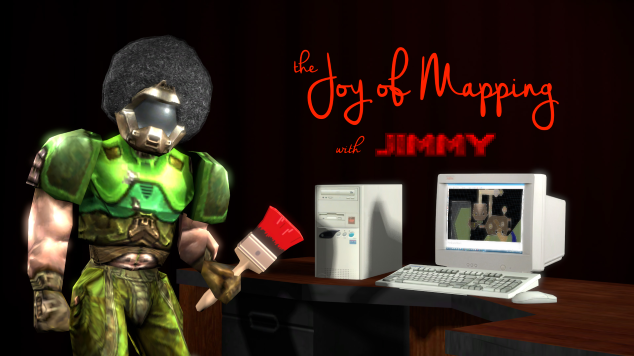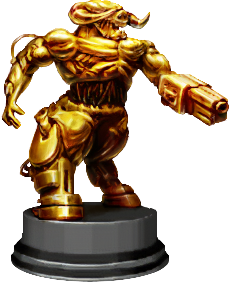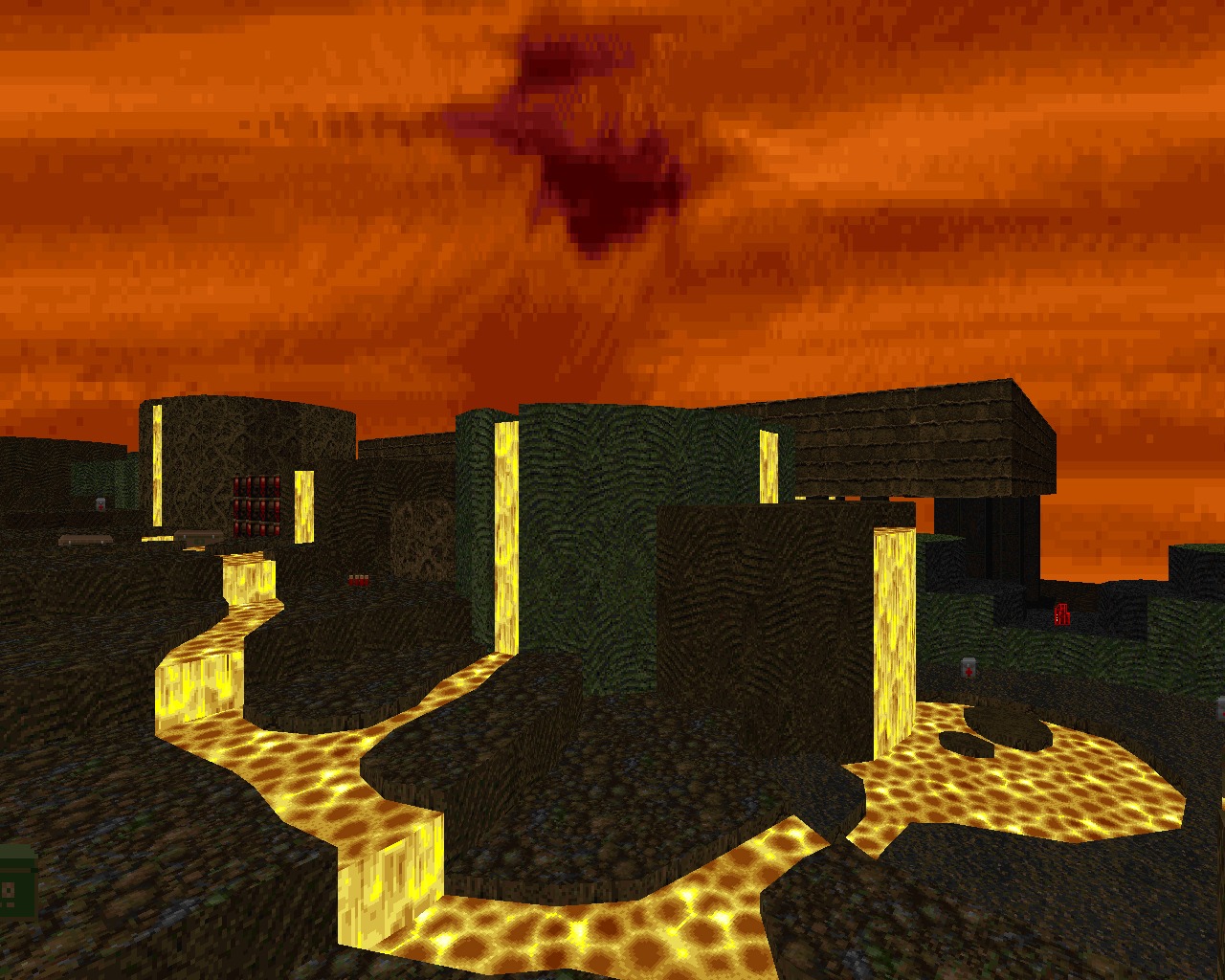-
Espi Award - For lifetime achievement
“…Id Software for this great game, CodeImp for Doom Builder, and Jimmy for the MIDIs” – every textfile ever
When your name appears in the credits for droves of PWADs year after year, do you really need an introduction? How about this, then: Plutonia 2, Speed of Doom, Reverie, Back to Saturn X, Community Chest 4, Forsaken Overlook, Hellbound, Monster Hunter Ltd., Resurgence, Valiant, Skulldash, Nova 2, Mutiny, Demonastery, Doom 404, Mayhem 2018, Eviternity, Sigil. That’s a partial (VERY partial) list of Doom creations that have relied on Jimmy’s music.
During the 1990s, there were a small but prolific handful of Doom composers—notably Tom Mustaine, Jeremy Doyle, David “Tolwyn” Shaw, and Mark Klem—whose music fueled all of the major projects. It’s hard to overstate how important a good soundtrack is for any video game; it’s an essential component of the “gamefeel,” and a huge part of what people remember after they’ve finished playing. And once Klem and the rest moved on from the Doom community, they left an emptiness in their wake. A handful of original tracks cropped up throughout the 2000s, including the soundtracks for Vile Flesh and Equinox—both of which were composed by the mapper, who just happened to be multitalented. But for the most part, the period from 1999 to 2008 was a musical dead zone; if you wanted a soundtrack, you were just going to have to rip it in bits and pieces from Ultimate Doom, Evilution, Rise of the Triad, Duke Nukem 3D, and whatever else was lying around.
Then in 2008, Jimmy popped up practically out of nowhere with a thread full of cool MIDI tracks that were available for anyone to use. It was a godsend. Within a few months, the Plutonia 2 team had tapped him to write music for the megawad (along with fellow newcomer Stewboy and a handful of other people), for which he composed the lion’s share of the tracks. The rest is history.
Jimmy’s work gained popularity gradually over the next few years, beginning with music in the two Claustrophobia 1024 megawads. He hit full throttle in 2010 and 2011 with his compositions for Speed of Doom, Jenesis, and Reverie, and by the time BTSX rolled around, he and Stewboy were already the go-to composers for an entire new wave of Doom music. As of 2019, Jimmy is without a doubt the most prolific Doom composer ever, with nearly 600 tracks to his name. My personal favorite is still "Voyage" from Jenesis, but you could pick out dozens of outstanding, widely beloved tracks from his oeuvre: the iconic “Astral Dreadnought” and “Become the Hunted,” the sinister “Baron’s Province” and “Sunset Over Babylon,” the moody “Fallen Sun,” the more mature and complex “Weather Warning” and “Escape Velocity,” the 44-minute rock epic “The Godhood Suite,” and plenty more.
Jimmy’s music takes its inspiration from a variety of sources, including electronic rock, prog rock, and classic action-oriented console game soundtracks, and it’s a pretty far cry from the sort of grungy, simple hard rock that people associated with Doom in the 1990s. For years, he had to put up with crap from people who tried to claim that his music was “not Doom.” By the mid-2010s, those complaints had been steamrolled by all the people elbowing each other to get Jimmy’s music in their megawads. And as if we needed any final validation, it surely came this year when John Romero contacted him and asked to use a selection of his tracks in Sigil. It can’t get any more official than that. Jimmy’s music is Doom. For his musical contributions alone, Jimmy is a load-bearing pillar of the Doom community. For that alone, he would be more than deserving of the most prestigious award we've got.
So let’s talk about everything else he’s done.
Jimmy has won three Cacowards for his mapping, one for the modern-classic megawad Jenesis and two as the project leader and one of the primary mappers for The Adventures of Square, a game that has set a new gold standard for total conversions and helped to define the ethos of many subsequent GZDoom projects. This is to say nothing of the maps he’s contributed to various other major releases, from the second ZDoom Community Map Project to 50 Shades of Graytall to Eviternity. He created A Boy and His Barrel, a fun-loving dramedy that invented a completely new gameplay type, all in the name of protecting the goo-filled barrel of your dreams. Last year he stunned everyone by creating a three-episode Ultimate Doom megawad called Deathless in a total of nine days, a feat that could only be pulled off successfully by a total madman with a ton of experience. Then this year, he followed it up with a really neat experimental Heretic-meets-Hexen speed episode called Faithless.
Jimmy’s a bit of a polyglot, and music and level design are not, in fact, the extent of his talents. He’s created at least two texture packs, Jimmy-tex and Zoon-tex, and plenty of other stray contributions to Doomworld’s main texture jam thread (which he started). Although Jimmy has made the move to taking paid commissions for his music in the last year—quite justifiably, after all he’s already done for us—his texture work, like most of his music, has been given freely in the spirit of “here, have some cool stuff I made.” And in a nutshell, that’s the great thing about Jimmy. He has always approached Doom as a community, contributing constantly and with boundless enthusiasm, offering every part of his considerable talents so that other people can ride on his shoulders. He gave us Jimmy’s Jukebox, which offers an enormous on-demand music selection for anyone who wants to switch up the soundtrack of their favorite megawad. He spearheaded music composition community projects to create soundtracks for Plutonia, Revolution!, and The Rebirth, three great classic megawads that lacked custom music. But perhaps the most Jimmy thing he’s ever done was to create The Joy of Mapping, a workshop series geared toward helping new mappers understand the basics of whatever map format they choose and discover the fun of Doom as an art medium.

Every Espi recipient has left an indelible impression on the Doom community, but of all the people we’ve awarded, Jimmy’s impression might be the most personal. He’s just always been there for people. He’s absurdly skilled at practically everything, but he’s also a fantastic person who’s made sure those skills have benefitted others whenever possible.
We as a community wouldn’t be the same without him.




